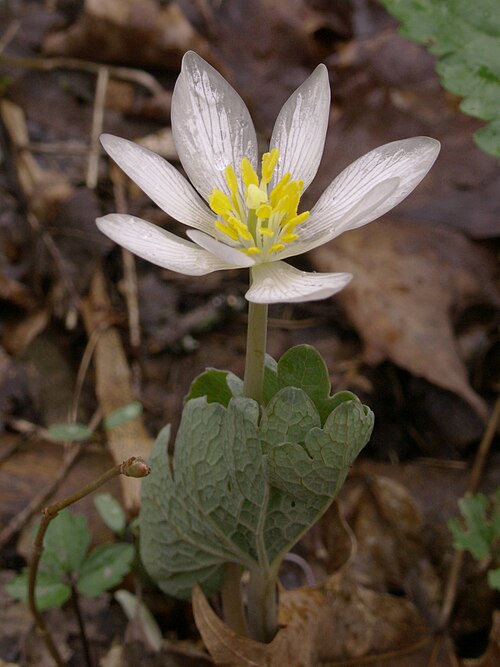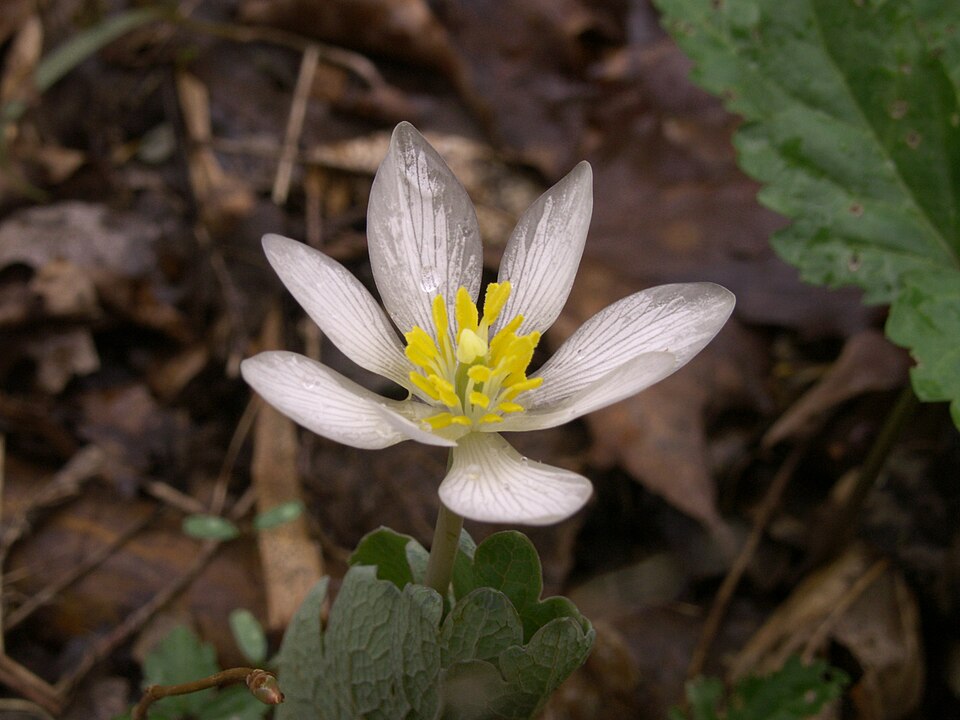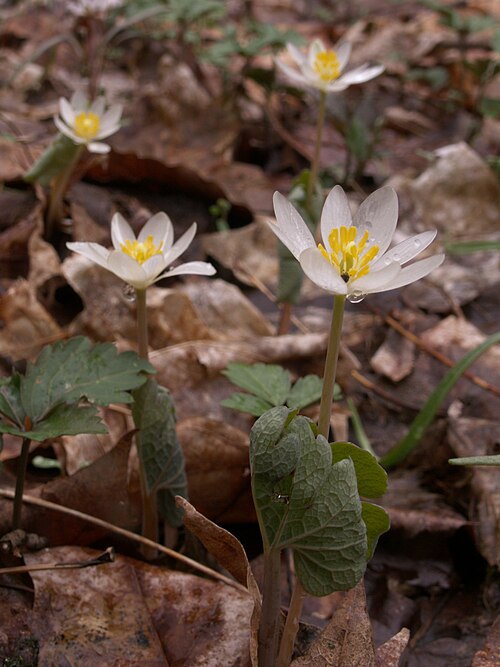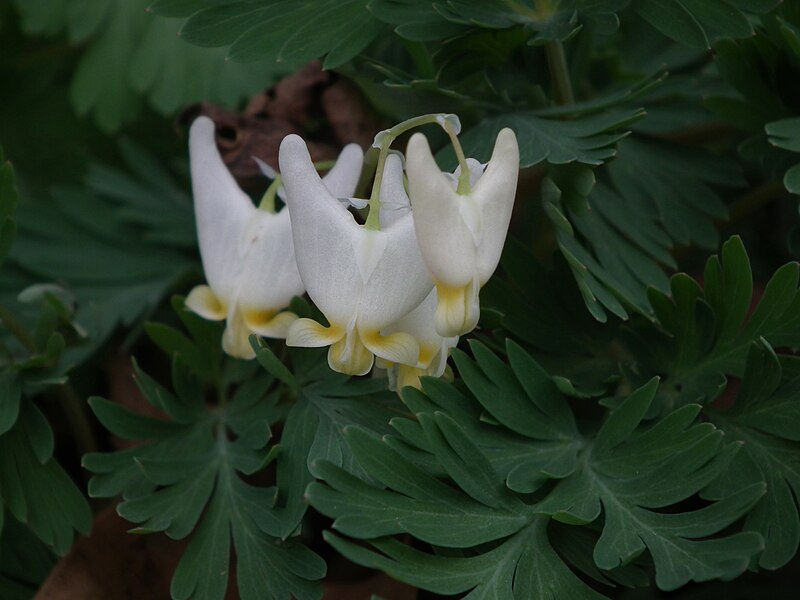
Bloodroot in the rain, which did not deter old Pa Pitt from getting these pictures. They were taken along the Trillium Trail in Fox Chapel.

For a full description, see the Sanguinaria canadensis reference page.


Bloodroot in the rain, which did not deter old Pa Pitt from getting these pictures. They were taken along the Trillium Trail in Fox Chapel.

For a full description, see the Sanguinaria canadensis reference page.


Somewhat similar to Celandine, but with larger flowers, with overlapping petals and bright orange stamens. This plant was blooming at the south end of the Trillium Trail in Fox Chapel.
For a description of the species, see the Stylophorum diphyllum reference page.

Not related to the Lesser Celandine, this greater Celandine is a member of the poppy family that likes to grow at the edge of the woods. This plant was blooming beside the parking area at the south end of the Trillium Trail in Fox Chapel.
For a description of the species, see the Chelidonium majus reference page.

Just coming out in Bird Park, Mount Lebanon. For a description, see the Dicentra cucullaria reference page.

Just beginning to bloom in Bird Park, Mount Lebanon. For a complete description, see the article on Dicentra cucullaria on the Flora Pittsburghensis reference site.



